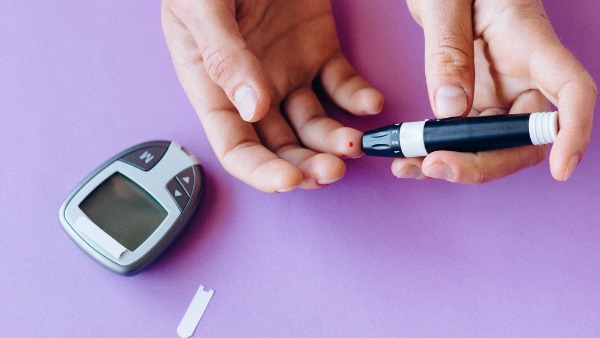Just In
- 10 min ago

- 3 hrs ago

- 4 hrs ago

- 9 hrs ago

Don't Miss
- Finance
 Results, Dividend, Fundraise On April24: Buy Top Bank Stock Amid Rich Valuation, TP Rs 1400: Nomura
Results, Dividend, Fundraise On April24: Buy Top Bank Stock Amid Rich Valuation, TP Rs 1400: Nomura - Sports
 Who Won Yesterday's IPL Match 33? PBKS vs MI, IPL 2024 on April 17: Mumbai Indians Escape Last-Ditched Fight by Punjab Kings To Win
Who Won Yesterday's IPL Match 33? PBKS vs MI, IPL 2024 on April 17: Mumbai Indians Escape Last-Ditched Fight by Punjab Kings To Win - Movies
 Do Aur Do Pyaar OTT Release Date & Platform: When & Where To Watch Vidya Balan’s Film After Theatrical Run?
Do Aur Do Pyaar OTT Release Date & Platform: When & Where To Watch Vidya Balan’s Film After Theatrical Run? - News
 BRS Chief K Chandrasekhar Rao Slams BJP, Says K Kavitha's Arrest Is Vendetta Politics
BRS Chief K Chandrasekhar Rao Slams BJP, Says K Kavitha's Arrest Is Vendetta Politics - Automobiles
 Aprilia RS 457 Accessories: A Detailed Look At The Prices
Aprilia RS 457 Accessories: A Detailed Look At The Prices - Education
 Karnataka SSLC Result 2024 Soon, Know How to Check Through Website, SMS and Digilocker
Karnataka SSLC Result 2024 Soon, Know How to Check Through Website, SMS and Digilocker - Technology
 Nothing Ear, Ear a With ANC, Up to 42.5 Hours of Battery Launched; Check Price and Availability
Nothing Ear, Ear a With ANC, Up to 42.5 Hours of Battery Launched; Check Price and Availability - Travel
Telangana's Waterfall: A Serene Escape Into Nature's Marvels
World Diabetes Day 2021: Effective Ways To Manage Diabetes During The Winter Season
World Diabetes Day is celebrated every year on 14 November to raise awareness on this chronic global health issue for its early detection and prevention, and support people with diabetes to manage the condition effectively and prevent its complications.
According to a Medicine journal, blood glucose in diabetics is significantly influenced by the seasons, with sugar levels increasing in winters and decreasing during summers. [1]

Photo Credit: Woman photo created by wayhomestudio - www.freepik.com
Though there are possibilities of spikes in sugar levels during winters in healthy individuals and diabetics, there are several effective ways that can help prevent the spike of glucose and keep you healthy during the season.
In this article, we will discuss effective ways to manage diabetes during the winter. Take a look.

1. Make a plan
Planning your meals ahead and sticking by them is the important way to control diabetes. This will help you eat foods in measured amounts and will ensure that your sugar levels are balanced. For example, if you have a dinner party or function planned ahead, have a light breakfast and lunch to manage the calories during dinner time.
2. Stay stress-free
Festivals during the winter can sometimes increase your stress. A study says that depression is frequently linked to the winter season and with depression and diabetes together, the rate of adverse outcomes is high. [2] Stress hyperglycemia (high blood glucose) can increase the risk of complications in diabetics, mortality or period of hospital stay. Therefore, make ways to release your stress by performing regular yoga, meditation or taking expert help.
3. Get flu shots
A study has shown that the influenza virus is a common and self-limiting viral infection that can be treated with prescribed medications, however, when it affects people with chronic or pre-existing conditions such as diabetes, the symptoms can get severe and may lead to fatal complications. This makes flu shots or vaccination important every year to prevent flu and worsening of your existing condition. [3]


4. Avoid skipping meals
Skipping meals, especially breakfast, is highly prevalent in young adults, leading them to the risk of obesity and chronic conditions like diabetes. [4] In diabetics, skipping any meal can cause an imbalance in glucose levels and may worsen their symptoms. During winters, in the fear of eating more and an increase in sugar levels, some diabetics try to skip meals, which often results in their sugar spike instead of its management. Therefore, no matter if you are a diabetic or not, avoid skipping meals and instead, prefer eating small portions of food every three hours.
5. Avoid alcohol consumption
Winters may invite more alcohol consumption.[5] Though some studies link light to moderate alcohol consumption with good heart health and thus, low risk of diabetes [6], they also highlight that excess alcohol consumption can cause adverse effects and increase the risk of diabetes. It can also cause damage to vital organs like the kidney and liver which are involved in insulin production and management.
6. Keep insulin handy
Insulin should be stored at a temperature of 2-8 degree-Celsius and must not be transported below 0 degree-Celsius. During winter, the chances of damage to insulin are high due to extremely cold temperatures. Therefore, diabetics who are on insulin or medications need to keep their injections, pens and medicines at the aforementioned temperatures to prevent any damage to them. Also, if you have hypoglycemia and need to keep juices and glucose handy, make sure to keep them at an acceptable temperature to avoid freezing. [7]


7. Keep hands and feet warm
According to a study, people with diabetes have reduced ability to maintain their core body temperature because of damage to the nerves due to high glucose. This dysfunction may cause reduced sweating in summers to balance body heat, and decrease blood supply in winters to increase body heat production. This makes diabetics prone to cold and heat-induced injuries. Therefore, during winters, diabetics are advised to keep their hands and feet warm to maintain their core body temperature and prevent any complications. [8]
8. Stay active
Seasonal differences often determine your physical activities. For example, cold temperatures during winters may cause you to reduce your physical activities and make you sluggish and inactive. In diabetics, this may lead to an increase in your cholesterol and glucose levels and can increase the risk of heart diseases. [9] Make ways to stay active, such as walking to grocery stores, climbing stairs or doing regular exercises. Physical activities will also help improve your mental health.
9. Take care of immunity
To cope with the winter season, our body demands several physiological and behavioural changes to maintain overall health. These demanding conditions can sometimes indirectly affect the immune system and make people prone to diseases. [10] Compromise in the immune system in diabetics during winters can be challenging and may cause them many physical and mental health issues. Therefore, it is suggested to adhere to a lifestyle that includes a healthy and immune-boosting diet and exercises to lift up the immunity and stay healthy.


10. Keep testing your sugar levels
Winters may tend to make one lazy and cause delays in their regular checkups. People with diabetes may also miss their regular glucose testing due to this. Medical experts suggest getting the glucose levels checked regularly to get an idea about your condition and take steps accordingly.
11. Watch out for COVID-19 symptoms
Unlike other winter seasons, this winter can be a bit different due to the ongoing COVID-19 pandemic. According to the American Diabetes Association, though there is not enough data suggesting that diabetics are more likely to get COVID-19, they are at increased risk of having worse complications if COVID-19 is contacted. Also, if a person has both diabetes and heart diseases, the risk of severity of the complications are even more compared to healthy adults. If you are a diabetic and have doubts about having COVID-19 symptoms, consult a medical expert soon.
To Conclude
Winters can bring many challenges for people with diabetes. Try to follow the aforementioned effective ways to manage your diabetes during the winter and stay healthy. Also, don't forget to share it with your family members or friends with diabetes.
-
 healthExclusive: World Oral Health Day 2024: Doctor Shares How Diabetic Patients Can Maintain Their Oral Health
healthExclusive: World Oral Health Day 2024: Doctor Shares How Diabetic Patients Can Maintain Their Oral Health -
 healthWhat Is VIP? It Is Not What You Think! This One Is Connected To Blood Glucose, Here's What You Need To Know
healthWhat Is VIP? It Is Not What You Think! This One Is Connected To Blood Glucose, Here's What You Need To Know -
 pregnancy parentingWhat Are The 4 Must Have Vitamins For Kids With Diabetes?
pregnancy parentingWhat Are The 4 Must Have Vitamins For Kids With Diabetes? -
 healthDoes This Everyday Cooking Ingredient Trigger Diabetes?
healthDoes This Everyday Cooking Ingredient Trigger Diabetes? -
 healthRoller Coaster Effect In Diabetes: Why Does My Blood Sugar Level Go Up And Down, How To Stop It
healthRoller Coaster Effect In Diabetes: Why Does My Blood Sugar Level Go Up And Down, How To Stop It -
 healthSinger Shakira Loves These 2 Indian Sweets! How To Make It Diet-Friendly?
healthSinger Shakira Loves These 2 Indian Sweets! How To Make It Diet-Friendly? -
 healthWorld Diabetes Day 2023: 3 Weird Things That Can Put You At Risk Of Developing Diabetes
healthWorld Diabetes Day 2023: 3 Weird Things That Can Put You At Risk Of Developing Diabetes -
 healthWorld Diabetes Day 2023: Daily Habits That Make One At Risk Of Diabetes
healthWorld Diabetes Day 2023: Daily Habits That Make One At Risk Of Diabetes -
 wellnessWorld Diabetes Day 2023: Avoid These Common Mistakes When Testing Blood Sugar Levels
wellnessWorld Diabetes Day 2023: Avoid These Common Mistakes When Testing Blood Sugar Levels -
 healthDiwali 2023: Kalakand Recipe For Diabetic People; It Is Sugar-Free & Keto-Friendly
healthDiwali 2023: Kalakand Recipe For Diabetic People; It Is Sugar-Free & Keto-Friendly -
 healthHow Poor Air Quality During Can Raise Your Diabetes Risk
healthHow Poor Air Quality During Can Raise Your Diabetes Risk -
 healthWhip Up These 3 Diwali Sweets For Your Diabetic Mom Over 40
healthWhip Up These 3 Diwali Sweets For Your Diabetic Mom Over 40


 Click it and Unblock the Notifications
Click it and Unblock the Notifications



